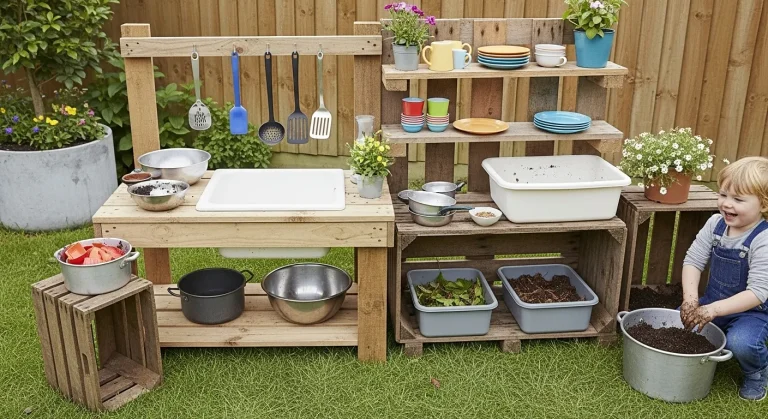Firstborn Child Parenting Tips| How To Raise A Confident Firstborn With Love And Care
Raising your firstborn is a unique experience filled with excitement, challenges, and lots of learning for both parents and children. As the first to enter the world, your firstborn child often experiences a variety of emotions and developmental milestones that can sometimes leave parents wondering what’s best for them. That’s why firstborn child parenting tips are essential to ensure they grow up confident, happy, and well-adjusted.
In this article, we’ll share expert insights and parenting hacks that will help you manage firstborn child behavior, encourage emotional growth, and build a strong, positive relationship with your firstborn. From handling your firstborn’s emotions to managing sibling rivalry, these practical tips will provide you with the tools to navigate this exciting journey with ease.
10 Firstborn Child Parenting Tips: Raising A Confident And Well-Rounded Firstborn
1. Establish Clear Boundaries and Expectations

Firstborn children often find themselves in leadership roles with younger siblings. It’s essential to set clear boundaries early on to ensure they understand their responsibilities without feeling overwhelmed. This will also help them understand that leadership comes with both privileges and responsibilities.
- Tip: Use positive reinforcement to acknowledge their efforts.
- Example: “I love how you’re helping your sibling; it shows great leadership!”
2. Encourage Independence

Since the firstborn often takes on more responsibilities, it’s important to encourage their independence. Allow them to make decisions within their capability, whether it’s choosing their clothes or deciding how to organize their room.
- Tip: Allow your firstborn to take on small tasks that promote independence, such as picking out their snacks or managing their schoolwork.
- Example: “You did a great job organizing your homework. Next time, you can pick the snacks too!”
3. Provide Emotional Support

Firstborn children are typically the first to experience big emotions, such as anxiety, frustration, or jealousy. How to handle your firstborn’s emotions can sometimes feel tricky, but emotional support is key.
- Tip: Validate their feelings and let them know it’s okay to feel what they are feeling.
- Example: “It’s okay to feel upset when things don’t go as planned. Let’s talk through it together.”
4. Avoid Putting Too Much Pressure on Them

It’s easy to unintentionally place extra expectations on your firstborn, thinking they should be perfect since they are the oldest. While they may be more mature, parenting the firstborn child effectively means avoiding overburdening them with too much pressure to “set an example.”
- Tip: Let them make mistakes and learn from them.
- Example: “Everyone makes mistakes, and that’s how we grow. You’ll do better next time!”
5. Praise Effort, Not Just Achievement

Firstborn children often aim for perfection, so it’s crucial to focus on praising their effort rather than the outcome. This helps foster a growth mindset and encourages them to keep trying, even when things don’t go as expected.
- Tip: Praise your firstborn for their hard work rather than just the results.
- Example: “I’m proud of how hard you worked on this project, even though it wasn’t easy.”
6. Foster Healthy Sibling Relationships

Managing sibling rivalry with your firstborn is a common challenge, especially when a younger sibling arrives. Encourage bonding activities that allow the firstborn to feel involved and appreciated, rather than sidelined.
- Tip: Give your firstborn a role in caring for their younger siblings, making them feel proud of their “big sibling” status.
- Example: “You’re such a great big brother/sister. Can you help your sibling with this task?”
7. Set Aside One-on-One Time

Your firstborn is often the first to experience parental attention, but it’s easy to overlook their need for individual time once more children come along. Make it a point to spend one-on-one time with your firstborn to help them feel special and secure in their place in the family.
- Tip: Schedule a regular “date” with your firstborn, such as a weekly outing or evening activity.
- Example: “Let’s have our special time together. How about a trip to the park this weekend?”
8. Encourage Emotional Intelligence

Teaching your firstborn about emotions and how to manage them is a valuable skill. Encourage them to express how they feel and offer coping strategies when they are upset.
- Tip: Use stories or role-playing to help your firstborn identify and express their emotions.
- Example: “It’s normal to feel upset, but let’s try to take deep breaths when you’re feeling frustrated.”
9. Help Them Develop a Growth Mindset

Teach your firstborn that mistakes are an essential part of learning. Encourage them to view challenges as opportunities for growth rather than failures.
- Tip: Use failure as a learning tool to guide them toward future success.
- Example: “You didn’t win this time, but now you know what to work on for next time. Let’s practice!”
10. Nurture Their Unique Personality

Every firstborn child has a unique personality, which may be influenced by their role as the eldest. It’s important to acknowledge and nurture their individual qualities while helping them grow into their person.
- Tip: Get to know your firstborn’s interests, strengths, and challenges to foster their individuality.
- Example: “I see how much you love reading! How about we explore new books together this week?”
Conclusion :
Raising a firstborn child comes with its own set of challenges, but by following these firstborn child parenting tips, you can help them develop into confident, independent, and emotionally healthy individuals. Parenting hacks such as setting clear boundaries, fostering independence, and offering emotional support can go a long way in ensuring your firstborn grows up with the right mindset.
Through consistent and thoughtful parenting, you can help your firstborn embrace their unique role in the family while providing the nurturing environment they need to thrive. Remember, every firstborn is different, and parenting tips for firstborns should be adjusted to suit their specific personality and developmental stage.



